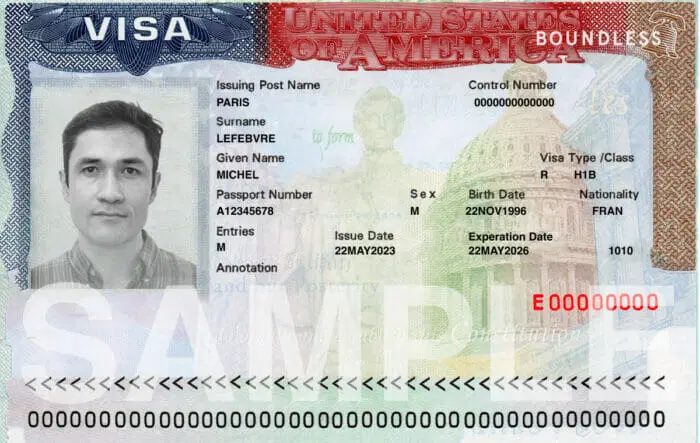Studying in the US is an exciting journey, but there’s no denying it can be expensive. Thankfully, working part-time can ease some of that financial pressure while giving you experience, skills, and a chance to connect with others. If you’re new to the US job market, you might wonder where to start, what kind of jobs are available, and how to balance work with study.
This article will help you through every step especially finding worthy part-time jobs for you!
Why Work Part-Time in the US?
Working part-time in the US isn’t just about covering your expenses. It’s also a valuable opportunity to build your resume, improve your English, and get real-world experience in an American workplace. Whether it’s helping with tuition fees, gaining professional skills, or simply meeting new people, part-time work is a smart choice.
Key Benefits of Part-Time Work:

- Financial Relief: Earn extra income to cover living expenses or save.
- Skill Development: Build communication, organization, and customer service skills.
- Professional Connections: Meet professors, supervisors, and classmates who can become part of your future network.
- Cultural Experience: Get a firsthand understanding of US work culture.
A 2023 study showed that international students contribute over $39 billion to the US economy, primarily through tuition and living expenses. Part-time work contributes not only to personal budgets but to the broader economy.
You can check: Best ways to Find Jobs in the USA as an International Student
Visa Regulations and Eligibility
As an international student, you’ll be working within the restrictions of your F-1 visa. Here’s what you need to know to ensure you’re following the rules:

F-1 Visa Rules for Part-Time Employment
- On-Campus Employment: During your first year, you’re limited to on-campus jobs (libraries, dining halls, campus events, etc.).
- Weekly Hour Limit: You can work up to 20 hours per week during the academic semester.
- Full-Time Employment: During school breaks (like summer or winter vacation), you may work full-time, meaning up to 40 hours per week.
Off-Campus Employment Options After the First Year
Once you complete your first year, you may be eligible for:
- Curricular Practical Training (CPT): If your degree requires an internship or practicum, CPT allows you to work off-campus while fulfilling your academic requirements.
- Optional Practical Training (OPT): After graduation, OPT lets you work in your field of study for up to 12 months. If you're in a STEM field, you can extend it for an additional 24 months.

Always get approval from your Designated School Official (DSO) before starting any job to ensure your visa status is secure.
Also see: How to Find a Student Job That Covers All Your Expenses
Types of Part-Time Jobs Available to International Students
The types of jobs you can pursue generally fall into two categories: on-campus and off-campus. Here’s a breakdown:
On-Campus Jobs

These are often within university facilities, making them accessible and generally straightforward to obtain:
- Library Assistant: Manage books, assist with checkouts, and help keep things organized.
- Teaching Assistant: Grade assignments, help with labs, and assist professors with classroom management.
- Dining Services: Work in a dining hall or cafe, serving food or managing inventory.
- Campus Tech Support: Help students and faculty with basic tech issues if you have an IT background.
- Recreation Center Staff: Manage equipment, assist with events, and monitor guest activities.
Off-Campus Jobs (Eligible After First Year with Approval)
With DSO approval, these jobs may include roles related to your field:
- Tutoring: As a tutor, you can help students—either classmates or local high school students—with subjects you excel in, such as math, science, English, or a foreign language. This role can be both fulfilling and well-paid, especially if you specialize in a subject in high demand.
- Research Assistant: Research assistantships often involve working on faculty-led research projects, which might include data collection, conducting experiments, or helping analyze findings. These positions are especially beneficial for students in STEM, social sciences, or any research-intensive field.
Research assistant roles are often posted on department bulletin boards or emailed through faculty announcements. Reaching out to professors whose research interests align with yours can also open doors. Additionally, some jobs may be posted on university job boards or career centers.

3. Retail/Sales Associate: Retail jobs in stores like clothing shops, electronics stores, or grocery stores are popular choices. Retail positions involve assisting customers, managing inventory, handling cash, and ensuring store cleanliness. The holiday season brings additional opportunities as stores need more staff to handle increased customer traffic.
4. Freelance Work: Freelancing in areas like graphic design, content writing, IT support, social media management, and software development can be a flexible and lucrative option for students with specialized skills. Platforms like Upwork, Fiverr, and Freelancer allow you to take on various projects that align with your schedule and expertise.
Check Out: How International Students Can Transfer Funds to Family
Top 10 Part-Time Jobs for International Students
Let’s look at some popular part-time roles you might consider:
- Library Assistant
Earning between $13 and $16 per hour, a Library Assistant position is ideal if you love quiet, academic spaces. You’ll organize resources, help with book check-outs, and ensure the library remains a peaceful study haven. This job not only surrounds you with knowledge but also introduces you to valuable campus resources and study spots, all in a calm, low-stress environment that complements a busy academic schedule. - Teaching Assistant (TA)
With hourly wages ranging from $15 to $25, working as a TA is a great choice if you’re looking to connect with faculty and dive deeper into your subject. TAs assist professors with grading, lead labs, and occasionally help with class discussions. This role is perfect if you’re considering a future in academia or simply enjoy teaching. Plus, you get to strengthen your subject knowledge and build valuable faculty relationships. - Peer Tutor
For those with expertise in subjects like math, science, or languages, peer tutoring can bring in $20 to $30 per hour. Flexible and rewarding, tutoring lets you earn by helping others understand challenging concepts while solidifying your own knowledge. It’s ideal for students who enjoy teaching and can fit tutoring sessions between classes. - Catering Staff
If you enjoy active, fast-paced environments, catering might be the right choice. Paying $10 to $14 an hour, catering involves setting up food stations, serving, and cleaning up after campus events. This role keeps you on your feet and offers a chance to network with event organizers, faculty, and even students from different departments. - Campus Tour Guide
Tour guiding pays $12 to $18 per hour and is perfect if you know your campus well and enjoy meeting new people. Tour guides show prospective students around, sharing insights to give visitors a sense of campus life. It’s a great job for extroverts who want to hone their storytelling and public speaking skills while working closely with the admissions team.
- Receptionist
Earning $12 to $16 per hour, a receptionist position involves greeting visitors, answering calls, and basic administrative work. This job offers a steady, low-stress introduction to office management and customer service, making it ideal for students interested in these fields. Plus, you may even get some downtime to catch up on your own studies. - Research Assistant
For $15 to $21 per hour, research assistant roles are perfect for those in STEM or social sciences. You’ll support professors with experiments, data collection, or literature reviews, gaining hands-on experience and building skills that are directly applicable to your field. Working with faculty in this way can also lead to mentorship, recommendations, or future collaborations.
- Bookstore Assistant
With pay between $10 and $14 per hour, a bookstore assistant role is great for students who enjoy working with books and school supplies. You’ll help students locate materials, manage inventory, and keep the store organized. It’s a friendly, low-stress environment that lets you connect with other students, and you get access to discounts for your own textbooks. - Student Ambassador
Representing your university as a Student Ambassador pays between $10 and $15 per hour. Ambassadors welcome new students, participate in orientations, and assist at events. This social role requires confidence and a positive attitude, offering experience in public speaking, event management, and networking. It’s ideal for those who love school spirit and helping others acclimate to campus life. - Lab Assistant
For those in scientific fields, being a lab assistant offers hands-on experience and pays $12 to $20 per hour. Lab assistants support professors with experiment setups, equipment maintenance, and sometimes data recording. This role is perfect for STEM students aiming to build practical skills and foundational lab knowledge that can lead to internships or professional research roles.
On-campus jobs typically pay between $10–$20 per hour, with specialized positions like tutoring or research assisting paying higher.
Expected Earnings
Your earnings will vary based on the type of work, your location, and sometimes even your level of experience.
Here’s a table with quick salary guide:
Urban areas typically offer higher pay but also come with higher living costs. For instance, a part-time worker in New York City earns more than one in a rural area.
Steps to Find Part-Time Jobs in the US
Here’s a step-by-step roadmap to get you started:
Step 1: Visit the Campus Career Center

Most US universities have a dedicated career center that offers resources like job boards, resume workshops, and interview coaching. They can also connect you to on-campus and off-campus job opportunities that fit your visa status.
Step 2: Polish Your Resume
Your resume should be clear and tailored to the job you’re applying for. Highlight any skills, previous job experience, or relevant academic achievements. If you’re applying for a campus job, add your course details and anticipated graduation date.
Step 3: Start Applying
Once your resume is ready, start applying to jobs that suit your schedule and skills. Remember to prioritize on-campus roles in your first year, as these are often easier to secure and come with built-in visa compliance.
Step 4: Network with Faculty and Peers
Sometimes, the best jobs are those that aren’t publicly posted. Networking with professors, attending campus events, and joining student clubs can help you find out about job openings through word of mouth.
Step 5: Follow Up on Applications
Following up can make a difference! Send a polite email a week or so after submitting your application to reiterate your interest in the role.
See also: Unlocking Career Success as an International Student
Where to Look
Here’s where to find part-time jobs as an international student:
- Handshake: Many universities partner with Handshake, a platform where you can apply for on-campus and off-campus jobs.
- LinkedIn: A top resource for networking and finding jobs; look for part-time listings in your area.
- Indeed: Use filters to find part-time jobs specifically for students.
- Snagajob: A job board focused on hourly jobs, many of which are part-time.
5. University Job Boards: Check your university's website or career portal for listings. Many on-campus jobs aren’t listed on larger job sites.
FAQs
1. Can international students work part-time in the US?
Yes, international students with an F-1 visa can work part-time in the US, but there are restrictions. During your first year, you can work only on-campus, up to 20 hours per week during the semester and full-time during school breaks.
2. What types of on-campus jobs are available?
Common on-campus jobs include roles as a library assistant, teaching assistant, research assistant, dining hall worker, campus tour guide, or receptionist. Most of these positions are flexible, fitting around your class schedule.
3. How much can I expect to earn in a part-time job?
Hourly pay varies by role, but on-campus positions typically pay between $10 and $20 per hour. Some specialized jobs, like tutoring or research assistant roles, may offer a higher wage, up to $30 per hour in some cases.
4. Are there any restrictions on working off-campus?
Yes. In your first year, you are generally restricted to on-campus employment. After the first year, you may be eligible for Curricular Practical Training (CPT) or Optional Practical Training (OPT), which allows off-campus work in your field of study with approval from your Designated School Official (DSO).
5. What is Curricular Practical Training (CPT)?
CPT is a type of work authorization for F-1 students that allows you to work off-campus if it is a required part of your degree program, such as an internship or practicum. CPT must be related to your major, and you need approval from your school.
6. What is Optional Practical Training (OPT)?
OPT allows you to work in the US for up to 12 months after completing your studies. For STEM students, there's an additional 24-month extension. OPT must be related to your field of study, and you must apply for it with USCIS.
7. Where can I find part-time job listings?
You can find part-time jobs on your university’s career center website, job boards like Handshake, LinkedIn, and Indeed, and campus departments or bulletin boards. Don’t forget to check with friends, classmates, and professors, as they might know of openings.
8. Do I need a Social Security Number (SSN) to work?
Yes, you need an SSN to work legally in the US. Once you have a job offer, you can apply for an SSN through the Social Security Administration. Your DSO or university career center can guide you through this process.
9. How can I balance my job with my studies?
Balancing work and studies requires good time management. Prioritize your coursework, choose jobs with flexible hours, and set limits to avoid overcommitting. If possible, find a role that aligns with your academic interests or allows you to study while working, like a library assistant.
10. Is it difficult to get an on-campus job as an international student?
It can vary by university and job availability. Popular roles like teaching or research assistantships can be competitive, but entry-level jobs like dining hall positions or library aides are often more accessible. Applying early each semester can improve your chances.
11. What documents do I need to start working?
For on-campus jobs, you’ll need your passport, visa, I-20 form, and a Social Security Number. For off-campus employment like CPT or OPT, you’ll need additional authorization, which may include an Employment Authorization Document (EAD) from USCIS.

